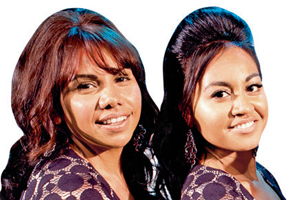There’s something about going to see an Australian film that fills me with terror. I want to love it so much. I want to sing the praise of Aussie talent. But that doesn’t always happen. So when I sat down to watch The Sapphires, I found myself holding my breath and praying it would be a winner.
Set in 1968 and based on an unlikely true story, The Sapphires charts the journey of four Aboriginal women who form a girl group and perform for the troops during the Vietnam War.
Gail (Deborah Mailman) is an instantly commanding presence but it’s hard not to cringe on her behalf when she uses expressions like ‘‘whitefella’’.
The dialogue that sets up the relationship between Gail, her sisters Julie (Jessica Mauboy), Cynthia (Miranda Tapsell) and their cousin Kay (Shari Sebbens) is initially jarring and cliched, but that’s soon forgotten as their calamitous manager, Irishman Dave Lovelace (Bridesmaids’ Chris O’Dowd), attempts to whip them into harmonious shape.
It’s a significant feat to have an audience laughing in scenes set in war-torn Saigon and yet it is impossible not to grin as Mauboy shines during the Sapphires’ rendition of What A Man.
Some viewers may be temporarily distracted, wondering why a Salt-n-Pepa song from 1993 is featured in a scene set in 1968. A quick Google search will reveal that the song, originally by Linda Lyndell, is an accurate reference to the soul hits of the day, as are all the stellar soundtrack choices.
We could dwell on the sexism – women in sparkly frocks shimmying in the direction of lewd lunges from sex-starved men – but the determination and bravery of these women at a time when their people had only just been given the right to vote eclipses the need to go on a feminist rant.
As relationship complexities deepen and romantic interests develop, it’s near impossible not to become emotionally invested. Director Wayne Blair successfully oscillates between warming hearts and tugging at heartstrings.
Plucking four young women from the outback and inserting them into Saigon is a refreshingly incongruous setting for a local film. But most impressive is the fact that this indigenous answer to Dreamgirls is a true story that we can proudly share with a global audience.







